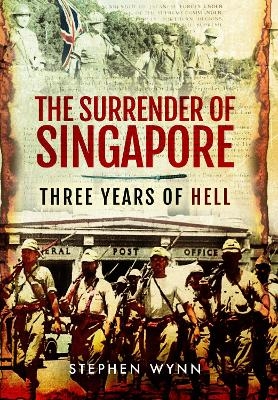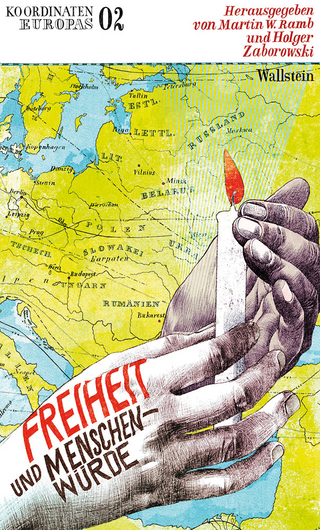
The Surrender of Singapore
Three Years of Hell
Seiten
2024
Pen & Sword Military (Verlag)
978-1-3990-7536-7 (ISBN)
Pen & Sword Military (Verlag)
978-1-3990-7536-7 (ISBN)
Until the late 1930s, Singapore was noted as a popular stop-off point for wealthy European travellers on their way to countries such as Australia and New Zealand. All of that changed with the outbreak of the Second World War.
Despite Major-General William Dobbie, the General Officer Commanding Malaya between 8 November 1935 and August 1939, warning that Singapore could be conquered by the Japanese, his concerns went unheeded. As far as the British authorities were concerned, Singapore was an impregnable fortress.
There were many reasons which led to the fall of Singapore. The apparent arrogance of some senior British military personnel and politicians; a misconception that Japanese soldiers were inferior to their American and Commonwealth counterparts; a belief that Japan would not militarily engage both America and Britain at the same time; and that as far as the Allies were concerned, victory in Europe was a priority over defeating the Japanese throughout Asia and the Pacific.
Singapore fell to the Japanese in 1942 and was then controlled by them for the next three years, a time in which Chinese civilians and Commonwealth soldiers were murdered at their hands, in such incidents as the Sook Ching massacre and the Burma Railway death march.
Included in this account is one mans never before told story of his time as a PoW in Changi prison. The book explores how he miraculously survived the horrors of working on the Burma railway, only to be sent back to Changi, and reveals how the Japanese authorities held letters that his wife sent him for three years.
Winston Churchill decided against a public enquiry into the circumstances surrounding the fall of Singapore, and no subsequent British Government has seen fit to change that decision. This remarkable book seeks to remedy that by using an array of sources to tell the fascinating and largely forgotten story of the fall of Singapore.
Despite Major-General William Dobbie, the General Officer Commanding Malaya between 8 November 1935 and August 1939, warning that Singapore could be conquered by the Japanese, his concerns went unheeded. As far as the British authorities were concerned, Singapore was an impregnable fortress.
There were many reasons which led to the fall of Singapore. The apparent arrogance of some senior British military personnel and politicians; a misconception that Japanese soldiers were inferior to their American and Commonwealth counterparts; a belief that Japan would not militarily engage both America and Britain at the same time; and that as far as the Allies were concerned, victory in Europe was a priority over defeating the Japanese throughout Asia and the Pacific.
Singapore fell to the Japanese in 1942 and was then controlled by them for the next three years, a time in which Chinese civilians and Commonwealth soldiers were murdered at their hands, in such incidents as the Sook Ching massacre and the Burma Railway death march.
Included in this account is one mans never before told story of his time as a PoW in Changi prison. The book explores how he miraculously survived the horrors of working on the Burma railway, only to be sent back to Changi, and reveals how the Japanese authorities held letters that his wife sent him for three years.
Winston Churchill decided against a public enquiry into the circumstances surrounding the fall of Singapore, and no subsequent British Government has seen fit to change that decision. This remarkable book seeks to remedy that by using an array of sources to tell the fascinating and largely forgotten story of the fall of Singapore.
Stephen is a retired police officer having served with Essex Police as a constable for thirty years between 1983 and 2013. He is married to Tanya and has two sons, Luke and Ross, and a daughter, Aimee. When not writing, Stephen can be found walking his four dogs with his wife Tanya at some unearthly time of the morning, when most normal people are still fast asleep.
| Erscheinungsdatum | 02.11.2024 |
|---|---|
| Zusatzinfo | 36 mono illustrations |
| Verlagsort | South Yorkshire |
| Sprache | englisch |
| Maße | 156 x 234 mm |
| Themenwelt | Sozialwissenschaften ► Politik / Verwaltung |
| ISBN-10 | 1-3990-7536-5 / 1399075365 |
| ISBN-13 | 978-1-3990-7536-7 / 9781399075367 |
| Zustand | Neuware |
| Haben Sie eine Frage zum Produkt? |
Mehr entdecken
aus dem Bereich
aus dem Bereich
Grundlagen, Entwicklungen, Positionen
Buch | Hardcover (2023)
wbg Academic (Verlag)
40,00 €
oder: Was Europa zusammenhält
Buch | Hardcover (2024)
Wallstein Verlag
22,00 €


